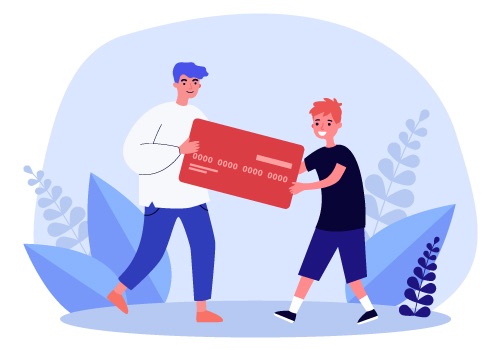Debt Management Strategies: Paying Off Loans and Credit Cards Efficiently
07/31/2024
By: TENCU

|
Debt is a common issue many people face and can be a significant source of stress. However, you can efficiently manage and pay off your debt with a structured approach and the right strategies. Here are some practical tips to help you start on the path to financial freedom.
|
Eight Steps for Success
1. Assess Your Financial SituationThe first step in managing debt is to understand your financial situation thoroughly. List all your debts, including the outstanding balances, interest rates, and minimum monthly payments. This will give you a clear picture of your debts and help you prioritize your expenses. 2. Create a BudgetA well-planned budget is crucial for effective debt management. Track your income and expenses to identify areas where you can cut back. Allocate a portion of your income toward debt repayment while ensuring you have enough for essential expenses. Numerous budgeting tools and apps are available to simplify this process.
|
3. Prioritize Your DebtsNot all debts are created equal. Prioritize paying off high-interest debts first, such as credit cards, as they accrue interest faster. This strategy, the avalanche method, can save you money in the long run. Alternatively, the snowball method, which focuses on paying off smaller debts first to build momentum, can also be effective for some individuals. 4. Consider Debt ConsolidationDebt consolidation involves combining multiple debts into a loan with a lower interest rate. This can simplify your payments and reduce the amount of interest you pay over time. Options for consolidation include personal loans, balance transfer credit cards, and home equity loans. Be sure to compare the terms and fees associated with each option to determine the best fit for your situation.
|
 |
5. Negotiate with CreditorsDon’t hesitate to reach out to your creditors to negotiate better terms. You may be able to secure a lower interest rate, a reduced balance, or a more manageable payment plan. Creditors are often willing to work with you if it means they are more likely to receive payment. 6. Utilize Windfalls WiselyConsider using it to pay down your debt if you receive a windfall, such as a tax refund, bonus, or inheritance. Applying these unexpected funds directly to your outstanding balances can significantly accelerate your debt repayment journey. 7. Seek Professional HelpIf you’re overwhelmed, consider seeking help from a credit counseling agency. These organizations can provide guidance, negotiate with creditors on your behalf, and help you create a debt management plan. Ensure you choose a reputable agency accredited by the National Foundation for Credit Counseling (NFCC) or the Financial Counseling Association of America (FCAA).
While working on paying off your current debt, it’s essential to avoid accumulating more. Limit the use of credit cards and consider switching to a cash or debit card system to keep your spending in check. Focus on living within your means and making conscious financial decisions. |
|
Managing and paying off debt requires dedication, discipline, and a strategic approach. By assessing your financial situation, creating a budget, prioritizing your debts, and exploring options like debt consolidation and negotiation, you can take control of your finances and work towards a debt-free future. Remember, every step you take towards managing your debt brings you closer to financial freedom.
|
Consider a HELOC to consolidate your debt.
